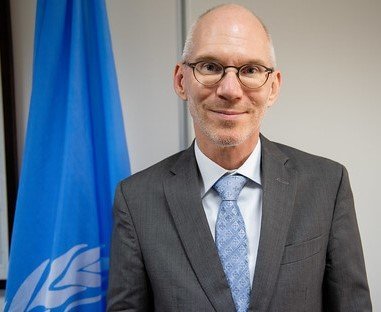UNSOM STATEMENTS OF THE ABSURD

Press releases from United Nations Assistance Mission in Somalia (UNSOM) intended to express collective view on the situation in Somalia are becoming statements of the absurd.
For the last three weeks news from Somalia gave a clearer picture of the progress the Somali Federal Government has made since February 2017, when President Mohamed Abdullahi Mohamed was elected to become the second President of post-transition Somalia.
The Somali President is due to visit New York to attend the UN General Assembly, this time as a citizen of Somalia. President Mohamed renounced US citizenship last month, denying his opponents the opportunity to carry on the debate about the dual citizenship.
The Prime Minister, Hassan Ali Kheire, retains his Norwegian citizenship and may even run for Presidency. He faces strong opposition. The former Federal Planning Minister, Abdi Aynte, criticised both the President and the Prime Minister for pursuing a zero sum game politics in a country that can thrive on collective and consensus-based leadership.
The ability with which Al-shabaab levies tax on businesses in Mogadishu and neighbouring regions puts a question mark over claims of progress made by the government. How the extremist organisation acquired the ability to levy tax despite being kicked out of Mogadishu and nearby districts seven years ago is unfathomable to many. The Chairman of the Somali Chamber of Commerce, Abdi Abshir Dhorreh, told VOA Somali Service that Al-shabaab receives details of imports and identities of importers to be able to figure out tax liabilities for each business. As if that was not enough, Al-shabaab made contacts with technicians and workers at Mogadishu stadium. It ordered them not to resume reconstruction of the stadium. They complied with the order.
Since 2017 Al-shabaab assassinated more than 40 elders, who had a role in the selection of MPs and Senators for 2017 elections; it pardoned elders who went to areas controlled by the group to repent. Al-shabaab has organised seminars for more than 100 Somali elders from different parts of Somalia. The failure to protect Somali citizens against the terrorist organisation is enough to intimidate elders into toeing Al-shabaab line. The resurgence of Al-shabaab results from, among other catalysts, the policy of the Federal Government of Somalia to try to centralise power while still relying upon AMISOM.
Countries in whose name UNSOM signs statements have different views. The phrase “friends of Somalia” will lose meaning if International Partners of Somalia keep covering up real challenges Somalis are facing due to poor political leadership.




